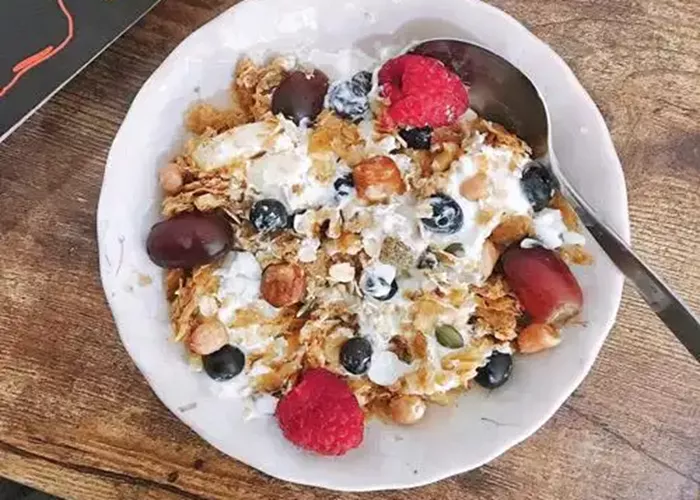Exercising at night has become increasingly popular among individuals seeking to improve their fitness levels, reduce stress, and even aid in better sleep. However, many people often wonder how to best arrange their diet post-workout, especially when exercising late in the evening or at night. This article aims to provide practical advice on how to manage your diet effectively after night-time exercise to maximize its benefits and support your overall health and weight loss goals.
Understanding the Importance of Post-Workout Nutrition
After engaging in physical activity, your body undergoes several physiological changes. Exercise increases your metabolism, breaks down muscle glycogen (stored energy in muscles), and can lead to muscle damage and inflammation. Post-workout nutrition plays a crucial role in helping your body recover, rebuild, and prepare for the next workout.
Refueling and Replenishment
Carbohydrates: Carbs are essential for replenishing glycogen stores in the muscles. They also help to stabilize blood sugar levels, which can prevent fatigue and hunger later in the evening.
Proteins: Proteins are vital for muscle repair and growth. Consuming a protein-rich meal or snack post-workout can help your muscles recover faster and reduce soreness.
Hydration
Exercise, especially intense or prolonged sessions, can lead to significant fluid loss through sweating. Proper hydration is crucial to maintain bodily functions, prevent dehydration, and aid in muscle recovery.
Timing of Post-Workout Meals
The timing of your post-workout meal or snack is crucial. Ideally, you should aim to eat something within 30 minutes to an hour after exercising. This window, known as the “anabolic window,” is when your muscles are most receptive to nutrients, making it an optimal time for recovery.
However, if you’re exercising late at night and concerned about disrupting your sleep or gaining weight, it’s important to strike a balance. Eating too close to bedtime can cause discomfort and potentially lead to weight gain if the calories consumed aren’t burned off.
What to Eat After Night-Time Exercise
When planning your post-workout meal or snack after exercising at night, consider the following:
Balanced Macronutrients: Aim for a balanced intake of carbohydrates, proteins, and fats. Carbs should be complex and low in glycemic index to avoid blood sugar spikes. Proteins should be lean and easily digestible. Fats should be healthy and in moderation.
Portion Control: Be mindful of portion sizes, especially if you’re eating closer to bedtime. Eating smaller, more frequent meals or snacks can help prevent overeating and aid in digestion.
Low-Stimulating Foods: Avoid foods that are high in caffeine, sugar, or other stimulants, as they can interfere with your sleep patterns.
Sample Meal Plans
Here are a few sample meal plans to consider after night-time exercise:
Chicken and Quinoa Salad
Ingredients: Grilled chicken breast, cooked quinoa, mixed vegetables (e.g., cherry tomatoes, cucumber, bell peppers), olive oil, and lemon juice.
Benefits: This meal provides a balance of protein, complex carbs, and healthy fats. The vegetables add fiber and essential nutrients.
Greek Yogurt and Berries
Ingredients: A serving of Greek yogurt, mixed berries (e.g., strawberries, blueberries, raspberries), and a drizzle of honey.
Benefits: Greek yogurt is high in protein and probiotics, which are beneficial for gut health. Berries provide antioxidants and vitamins.
Smoothie
Ingredients: Spinach, banana, almond milk, a scoop of protein powder, and a handful of ice.
Benefits: This smoothie is packed with nutrients, including protein, fiber, vitamins, and minerals. It’s also easy to digest and can be customized to your taste preferences.
Practical Tips for Night-Time Post-Workout Eating
Listen to Your Body: Pay attention to your hunger cues. If you’re not hungry after exercising, there’s no need to force yourself to eat. However, if you feel hungry, don’t ignore it, as it’s a sign that your body needs fuel.
Plan Ahead: Have healthy snacks or meals prepared in advance. This can help you avoid making unhealthy choices due to hunger or convenience.
Stay Hydrated: Don’t forget to drink plenty of water throughout the day and after exercising. Hydration is crucial for overall health and recovery.
Avoid Heavy Meals: Try to avoid heavy, greasy, or high-fat meals after exercising at night. These foods can be difficult to digest and may cause discomfort or indigestion.
Consider Your Sleep Schedule: If you’re exercising late and know you’ll be going to bed soon, opt for lighter snacks or meals that won’t weigh you down.
Potential Concerns and Myths
Weight Gain: Many people worry that eating after exercising at night will lead to weight gain. However, this isn’t necessarily true if you’re consuming the right types and amounts of food. Focus on balanced, nutrient-dense meals and snacks.
Digestion Issues: Some people may experience digestion issues when eating late at night. If this is a concern for you, consider eating smaller meals or snacks and avoiding heavy or spicy foods.
Sleep Disruption: Eating large meals or consuming stimulating foods close to bedtime can interfere with your sleep. Be mindful of what you eat and when to avoid disrupting your sleep patterns.
Conclusion
Arranging your diet after exercising at night doesn’t have to be complicated. By focusing on balanced macronutrients, portion control, and mindful eating, you can support your body’s recovery process while avoiding potential pitfalls like weight gain or digestion issues. Remember to listen to your body, plan ahead, and stay hydrated. With the right approach, you can maximize the benefits of your night-time workouts and maintain a healthy, balanced diet.
In summary, post-workout nutrition is crucial regardless of the time of day. When exercising at night, it’s important to consider the timing, types, and amounts of food you consume. By following the tips and sample meal plans outlined in this article, you can support your body’s recovery, maintain your energy levels, and achieve your fitness and weight loss goals.
Related topic:


